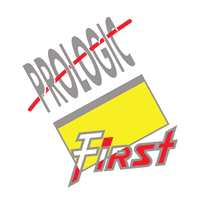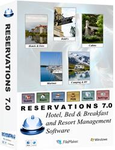Description

Aatithya HMS

MQSYS Hotel
Comprehensive Overview: Aatithya HMS vs MQSYS Hotel
Aatithya HMS, MQSYS Hotel, and Solidres are all hotel management systems (HMS) designed to streamline operations within the hospitality industry. Each has its own set of features and target markets, catering to different segments within the industry. Below is a comprehensive overview of each, comparing their primary functions, market presence, and distinguishing features.
Aatithya HMS
a) Primary Functions and Target Markets:
- Primary Functions: Aatithya HMS offers comprehensive features that include front desk management, housekeeping, reservations, billing, inventory control, and reporting. It focuses on integrating all hotel operations into a single platform to improve efficiency and guest experience.
- Target Market: Aatithya primarily targets small to mid-sized hotels, resorts, and guesthouses looking for cost-effective, integrated solutions to manage their day-to-day operations.
b) Market Share and User Base:
- Market Presence: Aatithya HMS tends to have a niche market presence, particularly in developing countries where budget-friendly solutions are in demand. It has a steady but limited growth trajectory in comparison to more international brands.
- User Base: The user base predominantly consists of smaller hospitality establishments with fewer resources for large-scale technology investments.
c) Key Differentiating Factors:
- Affordability: One of its most significant selling points is cost-effectiveness.
- All-in-One Solution: Offers a broad range of integrated services suitable for small operations.
- Localization: Often better suited and tailored for regional markets and language needs.
MQSYS Hotel
a) Primary Functions and Target Markets:
- Primary Functions: MQSYS Hotel provides hospitality management solutions with features such as reservation management, guest profiles, billing, inventory management, and event management.
- Target Market: Geared towards both medium and large-sized properties, it often attracts hotels that require robust, scalable solutions capable of handling more complex operations.
b) Market Share and User Base:
- Market Presence: MQSYS holds a more significant market posture in regions where scalability and enterprise-level solutions are crucial. It competes directly with other high-end HMS providers.
- User Base: Comprised mainly of larger hotels, chains, and high-profile establishments needing comprehensive management capabilities.
c) Key Differentiating Factors:
- Scalability: Offers robust solutions that can scale with the size of the hotel operation.
- Customization: Higher capability for customization to meet the specific needs of large-scale operations.
- Advanced Reporting: Provides in-depth data analysis and reporting functionality for better strategic planning.
Solidres
a) Primary Functions and Target Markets:
- Primary Functions: Solidres focuses on booking management for individual properties and property chains, alongside channel management, invoicing, asset management, and a modular system capable of enhancements through plugins.
- Target Market: It caters to a wide range of properties from small guesthouses and B&Bs to larger hotels, often used by establishments looking for a flexible and modular solution.
b) Market Share and User Base:
- Market Presence: Solidres has a strong presence in the open-source community, favored by businesses seeking customizable and extendable systems without committing to SaaS models.
- User Base: Characterized by tech-savvy hospitality businesses and developers looking for open-source solutions that can be tailored to specific needs.
c) Key Differentiating Factors:
- Open Source: As an open-source platform, it provides flexibility and cost savings on subscription fees.
- Modular System: Allows users to add or remove features according to their operational needs, enhancing flexibility and customization.
- Community Support: Benefiting from robust community support, allowing users to troubleshoot and enhance the system collaboratively.
Conclusion
In summary, Aatithya HMS is ideal for budget-conscious small to mid-sized operations focusing on integrated solutions, MQSYS Hotel is tailored for larger enterprises needing scalable and customizable features, and Solidres offers a flexible, modular, and open-source approach suitable for a wide range of hospitality businesses. Each system has its strengths and caters to different segments within the hospitality industry, defined by their unique sets of needs and constraints.
Contact Info

Year founded :
Not Available
Not Available
Not Available
Not Available
Not Available

Year founded :
Not Available
Not Available
Not Available
Not Available
Not Available
Feature Similarity Breakdown: Aatithya HMS, MQSYS Hotel
Comparing hospitality management systems such as Aatithya HMS, MQSYS Hotel, and Solidres involves examining their core features, user interfaces, and any unique functionalities they offer. Here's a detailed breakdown:
a) Common Core Features
-
Reservation Management:
- All three systems offer tools to manage booking, cancellations, and confirmations. This feature helps in organizing and optimizing room reservations efficiently.
-
Front Desk Operations:
- Each provides capabilities for managing check-ins, check-outs, and guest services, streamlining the operational workflow at the front desk.
-
Billing and Invoicing:
- Integrated billing solutions are available in all three systems to handle transactions, generate invoices, and manage payments seamlessly.
-
Reporting and Analytics:
- Basic to advanced reporting tools are present to generate performance reports, track occupancy rates, and provide data-driven insights.
-
Multi-Property Management:
- All systems offer multi-property management capabilities, allowing centralized control over several properties or facilities.
-
Inventory Management:
- They provide functionalities for managing room availability, housekeeping, and other resources efficiently.
-
Customer Relationship Management (CRM):
- Tools for managing guest information, preferences, and interactions to enhance customer experience are available as part of each platform.
b) User Interface Comparison
- Aatithya HMS:
- Generally, Aatithya offers a user-friendly and intuitive interface focused on simplicity. The design is clean and focuses on vital operations visibility.
- MQSYS Hotel:
- MQSYS Hotel balances functionality with aesthetics, providing a more visual approach to data with dashboards and color-coded alerts that enhance usability for different user levels.
- Solidres:
- Solidres typically integrates well with content management systems like Joomla and WordPress, offering a familiar UI to those accustomed to these platforms. Its interface is modular and flexible, favoring users who prefer extensive customization.
c) Unique Features
-
Aatithya HMS:
- Aatithya often includes unique regional integrations that cater to specific market needs in certain geographies, particularly useful for hotels in India.
- Offers integration with biometric systems, enhancing security and operational control.
-
MQSYS Hotel:
- Stands out with its comprehensive event management module, which is particularly beneficial for hotels that frequently host events and conferences.
- Extensive integration capabilities with third-party ERP systems provide enhanced scalability for large operations.
-
Solidres:
- Offers a robust booking engine with a wide range of configuration options for online reservations, combined with powerful integration capabilities with e-commerce solutions.
- The unique focus on integrating with Joomla gives it an edge for users looking for content management synchronization alongside booking management.
Each of these systems has its strengths, ensuring that they can cater to different segments within the hospitality industry, from small hotels to multi-property chains. The choice depends on the specific needs and operational scale of the hotel or hospitality business.
Features

Billing and Invoicing
Housekeeping Management
Guest Experience
Reporting and Analytics
Reservation Management

Front Desk Operations
Marketing and Promotions
Reporting and Analytics
Reservation Management
Housekeeping Management
Best Fit Use Cases: Aatithya HMS, MQSYS Hotel
When evaluating hotel management systems like Aatithya HMS, MQSYS Hotel, and Solidres, it's essential to match their features and capabilities to the specific needs of different types of businesses or projects. Each of these solutions has its strengths, which make them suitable for various scenarios. Here's a breakdown of their best-fit use cases:
a) Aatithya HMS
Best Choice For:
- Small to Medium-Sized Hotels: Aatithya HMS is generally designed to cater to the needs of small to medium-sized hospitality businesses, including boutique hotels, motels, and guesthouses.
- Budget-Conscious Businesses: It's suitable for businesses looking for a cost-effective solution without sacrificing essential features.
- All-in-One Feature Needs: Businesses seeking a comprehensive solution that handles front desk operations, reservations, billing, and housekeeping can benefit from Aatithya HMS.
- Local Market Focus: It's a good option for businesses focusing on regional markets where Aatithya HMS may offer localized support and features.
b) MQSYS Hotel
Preferred Option For:
- Mid-Range to Larger Hotels: MQSYS Hotel is often positioned to cater to the needs of mid-range to larger hotels that require a robust and scalable solution.
- Chains and Groups: This system can handle the complexities of hotel chains and groups with multiple properties, providing centralized control and management.
- Advanced Reporting and Analytics: Businesses that need sophisticated analytics and reporting capabilities to track performance and make data-driven decisions may find MQSYS advantageous.
- Customizable Solutions: It offers a level of customization, making it suitable for organizations with specific operational needs.
c) Solidres
Considered Over Others When:
- Integration with Joomla: Solidres is a great choice for businesses that are already using Joomla as their content management system because it integrates seamlessly with it.
- Vacation Rentals and Small Lodgings: This system is often leveraged by vacation rental owners, small operators, and bed-and-breakfast establishments.
- Ease of Use and Setup: For businesses that prioritize ease of setup and user-friendliness, Solidres can be an appealing option.
- Flexible Pricing Structures: When flexible pricing structures are needed to manage different types of accommodations and seasonal rates, Solidres excels.
d) Industry Verticals and Company Sizes
- Aatithya HMS: Primarily targets small to mid-sized hospitality sectors, including standalone hotels and smaller hotel groups. It's ideal for businesses without extensive internal IT resources.
- MQSYS Hotel: Suited for larger hospitality businesses, including luxury hotels and resorts, which need more complex operational oversight and international market reach. It caters to enterprises looking for advanced integrations and business intelligence capabilities.
- Solidres: Appeals to a niche market of small operators, including boutique hotels, holiday apartments, and niche accommodation providers. It's particularly suitable for those who prefer leveraging Joomla for website and booking management.
Ultimately, the choice between Aatithya HMS, MQSYS Hotel, and Solidres should depend on the specific operational needs, size, and strategic goals of the hospitality business considering them. Each product's ability to integrate with existing systems, customize to specific market requirements, and offer value for money will play significant roles in the decision-making process.
Pricing

Pricing Not Available

Pricing Not Available
Metrics History
Metrics History
Comparing undefined across companies
Conclusion & Final Verdict: Aatithya HMS vs MQSYS Hotel
To determine which of Aatithya HMS, MQSYS Hotel, or Solidres offers the best overall value, we must analyze the pros and cons of each and provide specific recommendations for potential users.
Best Overall Value
Based on features, ease of use, pricing, scalability, and customer support, Solidres typically offers the best overall value for a wide range of users. Its flexibility, strong feature set, and affordability make it a versatile choice for both small and medium enterprises.
Pros and Cons
Aatithya HMS:
-
Pros:
- Comprehensive feature set tailored for the hospitality industry.
- User-friendly interface.
- Strong support and training resources available.
-
Cons:
- Can be on the pricier side compared to other options.
- May have more features than necessary for smaller operations, leading to potential underutilization.
- Limited third-party integration options.
MQSYS Hotel:
-
Pros:
- Excellent for budget-conscious users with basic needs.
- Intuitive design with quick setup process.
- Reliable customer support for troubleshooting.
-
Cons:
- Lacks the depth of features and customization options found in more robust systems.
- Scalability may be an issue as businesses grow.
- Limited reporting and analytics features.
Solidres:
-
Pros:
- Highly customizable and flexible to suit a wide range of property types.
- Affordable pricing with different tiers for budget flexibility.
- Strong community support and continuous updates.
-
Cons:
- Steeper learning curve for users not familiar with Joomla (as Solidres is a Joomla extension).
- May require additional modules or plugins for full functionality, which can increase complexity.
- Integration may require technical know-how or additional support.
Recommendations for Users
-
Small to Mid-Sized Hotels: Solidres is recommended due to its cost-effectiveness and flexibility. It provides a wide suite of features that can grow along with your business, though it might require patience for those new to Joomla.
-
Budget-Conscious or Minimalistic Operations: MQSYS Hotel is best suited for users looking for simple and effective solutions without extensive features. It's ideal for smaller operations with limited growth plans.
-
Large Hotels or Chains with Complex Needs: Aatithya HMS could be the preferable option. Although more expensive, its comprehensive feature set and user-friendly interface can efficiently handle complex operations, offering good value for larger establishments.
Ultimately, the choice depends on your specific needs, budget, and willingness to navigate potential learning curves associated with each system. It's advisable for users to take advantage of free trials or demos offered by these systems to gauge their fit before committing.
Add to compare
Add similar companies



